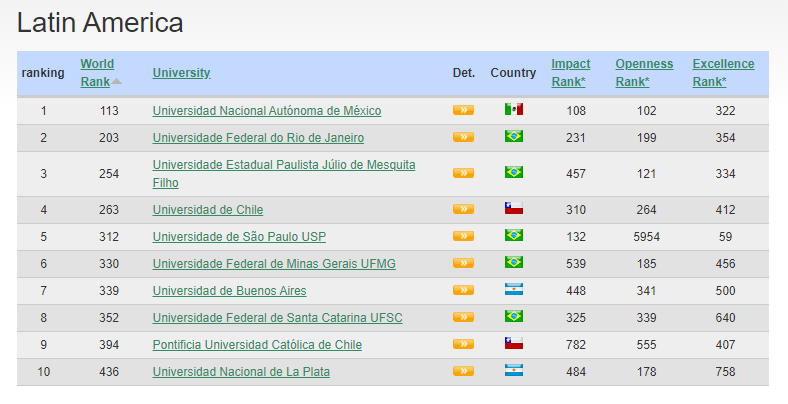Central Administration decides to suspend the beginning of Phase 2: return of in-person activities at UFSC
Due to the acceleration of cases of Covid-19 contamination, the Central Administration of the Universidade Federal de Santa Catarina (UFSC) decided to suspend indefinitely the progress to Phase 2 of the return to in-person activities. Normative Ordinance no. 419/2022/GR was signed this Friday, 7 January 2022, and published in the UFSC Official Bulletin on this same date.
The beginning of Phase 2 in all administrative and academic units at UFSC was scheduled for 10 January. With the suspension, each university office will continue to execute their current activity plans.
According to the Normative Ordinance no. 416/2021/GR, which had its effects suspended, as of 10 January all employees who do not belong to any risk group should return to in-person activities. The return would be carried out according to the activities plan prepared by the office, taking into account the sanitary conditions of the work environment.
In view of the news of increased cases of Covid-19 and overcrowding in public and private health units, the Rectorate held a meeting on Wednesday, 5 January , with representatives of the Permanent Commission for Epidemiological Monitoring, the Prorectorate for Personnel Management and Development (PRODEGESP), and other managers. After the meeting, the Acting Rector, Cátia Regina de Carvalho Pinto, sent a letter to the Commission requesting a statement “regarding the expected beginning of Phase 2 for the resumption of in-person activities in all administrative and academic units”.
The document prepared by the commission highlights the “acute expansion” of the Covid-19 pandemic in the world and the “scenario of explosive increase of cases” in Brazil and Santa Catarina. According to the commission, the effective reproduction number (Rt) – an indicator of the disease’s transmission rate – which had been on a downward trajectory, reversed this trend by the end of 2021. “And this has already been captured by the expansion of the number of people with the disease, whose level went from less than 2,000 cases in the pre-christmas period to more than 8,000 cases in the first days of 2022.”
The Permanent Commission for Epidemiological Monitoring also highlights the confirmation of community transmission of the Ômicron variant in Santa Catarina and the large increase in the percentage of positive cases in Covid tests performed in recent days. “This scenario has already put pressure on the health system, at this moment crowding health units with people in search of diagnostic tests and patients with symptoms of influenza syndrome.” Therefore, the committee expressed opposition to the start of Phase 2 with the resumption of in-person activities on 10 January.
As soon as the statement was received, the Rector issued the new resolution suspending the effects of the ordinances 416/2021/GR and 418/2021/GR, which established the Biosafety Guide for the return of in-person activities in Phase 2. “The University continues its efforts to protect the University Community. We will always act respecting science and preserving lives, and that is what we are doing at this moment,” said the acting Rector.
The UFSC’s actions to face the pandemic have taken into account the principles of safety and precaution, in order to preserve the health and lives of the community members. The Normative Ordinance 416 had the exception that “the deadlines and measures expressed in this normative ordinance can be changed depending on new facts that justify them”. This caution was adopted in other normative instruments published to guide the return to in-person activities at UFSC.
Read more in coronavirus.ufsc.br
Translated by SINTER/UFSC.
Read the original article here.






 Developed to be a first experience for international visitors before arriving in Brazil, and an important tool in the University’s internationalization process, the Brazilian Portuguese Survival Course arose from a clear need: a large number of international students at UFSC enter and leave the institution without learning to speak Portuguese. With this in mind, the staff from the Office of International Relations (Sinter) united their ideas and experiences with the technical expertise of the Office of Distance Education (Sead) to develop a 100% asynchronous Portuguese language course, fully adapted to situations that take place at the Universidade Federal de Santa Catarina (UFSC).
Developed to be a first experience for international visitors before arriving in Brazil, and an important tool in the University’s internationalization process, the Brazilian Portuguese Survival Course arose from a clear need: a large number of international students at UFSC enter and leave the institution without learning to speak Portuguese. With this in mind, the staff from the Office of International Relations (Sinter) united their ideas and experiences with the technical expertise of the Office of Distance Education (Sead) to develop a 100% asynchronous Portuguese language course, fully adapted to situations that take place at the Universidade Federal de Santa Catarina (UFSC).



 The Universidade Federal de Santa Catarina (UFSC) was a finalist in the
The Universidade Federal de Santa Catarina (UFSC) was a finalist in the  The recognition of UFSC as one of the most innovative universities in Brazil demonstrates that actors in the country’s innovation and entrepreneurship ecosystem perceive the university as an engine of technological development, sought to create solutions that meet the demands of various sectors of civil society. The Office of Innovation (SINOVA) is also responsible for managing the intellectual property assets from the institution’s organic body, and has been working on prospecting projects with the potential to become startups.
The recognition of UFSC as one of the most innovative universities in Brazil demonstrates that actors in the country’s innovation and entrepreneurship ecosystem perceive the university as an engine of technological development, sought to create solutions that meet the demands of various sectors of civil society. The Office of Innovation (SINOVA) is also responsible for managing the intellectual property assets from the institution’s organic body, and has been working on prospecting projects with the potential to become startups.
